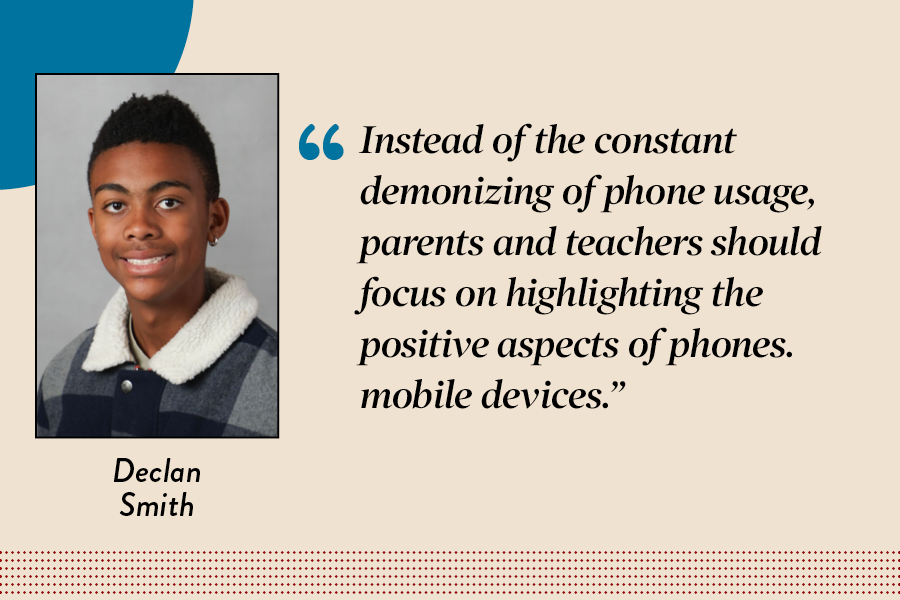It can be found everywhere — on the internet with screen time alerts and with online videos dedicated to getting teens off their phone. According to the Pew Research Center, it can be found in homes, where around 40% of parents argue with teens about phone usage. It can even be found at school, where teachers share openly their concerns regarding student phone usage, and why phones plague this generation. “It” is the complaints and limitations about teenage phone use by adults.
Instead of the constant demonizing of phone usage, parents and teachers should focus on highlighting the positive aspects of phones. Students should be encouraged to utilize the benefits of their mobile devices.
Like many things, smartphones have both positive and negative aspects, which should be considered. According to the Pew Research Center, 69% of teens say smartphones make it easier for them to pursue hobbies. Cedar Tree Counseling states that phones help teenagers keep connected to their friends. Many games also provide teenagers a needed relief from the stress of everyday life and school. However, when giving screen time advice, many people fail to acknowledge these positive aspects and focus solely on the negatives.
Anyone, including teenagers, should aim to strike a balance when using cell phones. Addiction to phones is a prevalent issue among teenagers especially, but phones can still be used in moderation. Teenagers and adults should take into account the warning signs of phone addiction but should also acknowledge that there are healthy ways to use phones without addiction.
This constant criticism and attempts to limit screen time have caused screen time shaming to run rampant. Phones allow teens methods of communication in emergencies and with family members as well as ways to communicate with classmates. Among U-High students specifically, class group chats have helped students with homework troubles. Writer Sarah Hagi argues in WIRED magazine that even tracking screen time has a detrimental effect, considering how little we know about what is normal and what is detrimental. This entire culture of tracking and shaming people over screen time is not beneficial to anyone — all it does is make teenagers feel embarrassed about how much time they spend on their phones and discourage teenagers from using their phones positively, which instead should be encouraged.
Instead of demonizing phone usage, failing to weigh both the pros and the cons, and making teenagers ashamed of their screen time, parents and teachers should keep an open mind when addressing phone use. People who need help with phone addictions should seek help, but others should be encouraged to use their phones positively and healthily. Adults should try to understand why teenagers are using their phones and acknowledge what positive impacts these uses may be having on teenagers.

























































anonymous • Dec 8, 2024 at 12:53 pm
This reads like your dad told you to get off your phone and you didn’t like it. Just unplug, you’ll be so much happier.